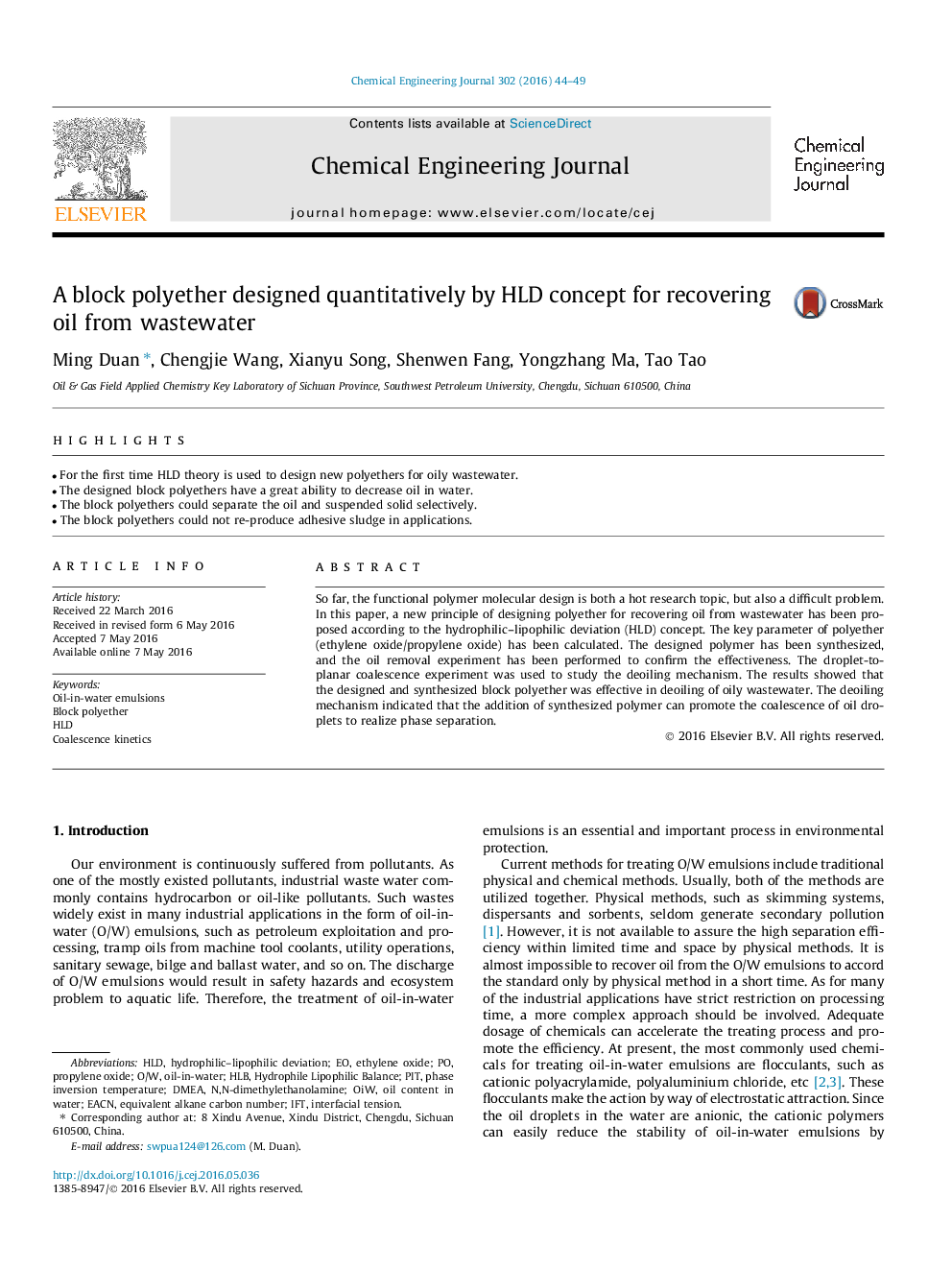| کد مقاله | کد نشریه | سال انتشار | مقاله انگلیسی | نسخه تمام متن |
|---|---|---|---|---|
| 145362 | 456338 | 2016 | 6 صفحه PDF | دانلود رایگان |
• For the first time HLD theory is used to design new polyethers for oily wastewater.
• The designed block polyethers have a great ability to decrease oil in water.
• The block polyethers could separate the oil and suspended solid selectively.
• The block polyethers could not re-produce adhesive sludge in applications.
So far, the functional polymer molecular design is both a hot research topic, but also a difficult problem. In this paper, a new principle of designing polyether for recovering oil from wastewater has been proposed according to the hydrophilic–lipophilic deviation (HLD) concept. The key parameter of polyether (ethylene oxide/propylene oxide) has been calculated. The designed polymer has been synthesized, and the oil removal experiment has been performed to confirm the effectiveness. The droplet-to-planar coalescence experiment was used to study the deoiling mechanism. The results showed that the designed and synthesized block polyether was effective in deoiling of oily wastewater. The deoiling mechanism indicated that the addition of synthesized polymer can promote the coalescence of oil droplets to realize phase separation.
Journal: Chemical Engineering Journal - Volume 302, 15 October 2016, Pages 44–49
